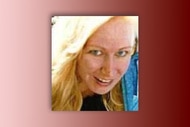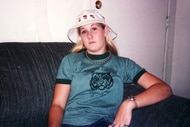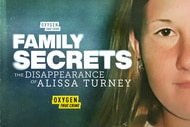Officers Didn't Believe Kennedi High Had Autism And Then She Narrowly Escaped Sex Trafficking
After her teen daughter Kennedi High vanished after getting into a car with a man, Brandi Stallings felt as though police did not understand how her autism diagnosis made her more trusting.

Kennedi High was nearly forced into a sex trafficking operation when law enforcement dismissed her autism.
Luckily, The Black and Missing Foundation, run by sister-in-laws Derrica and Natalie Wilson, advocates for missing persons’ families and brings attention to how missing Black people are treated in the media and by law enforcement, and they advocated for High.
High’s mother Brandi Stallings reached out to them in 2017 after High, 16, never came home from school. She was last seen getting into a car outside her Baltimore area school with an 18-year-old man that she met on a dating app. Stallings felt like the police didn’t comprehend that her daughter, who was diagnosed with autism at age 12, was in clear danger.
“She’s 16 on paper but are we looking at cognition?,” she reflected in “Black and Missing,” a four-part docuseries streaming on HBO Max. “Because I don’t think that was factored in. [...] Her brain just operates a little different than ours. She does not look at anyone as being a bad person which is hard because I'm afraid of her being taken advantage of.”
Stallings also expressed during a Baltimore Police Department press conference that she doesn’t think her daughter “believes she’s in danger but she really is.”
A former Baltimore investigator, whose face was distorted and name redacted from the series, called High’s case “funny” and said his opinions on it “may offend some people.” He said he failed to understand what functioning autism was.
“She went to Western,” he said. “Western is one of the good schools in Baltimore and you have to be educated to get into Western.”
The founders of the Black and Missing Foundation say in “Black and Missing” said they “immediately started to cringe” when looking at the intake form for HIgh’s case. They felt as though clear mistakes were made. Natalie said that an Amber Alert should have been issued immediately because High was with someone who was not her caregiver.
The sister-in-laws asked radio personality Michael Baisden to push for more attention on the case, which he did. At the same time, former Baltimore police chief spokesman T.J. Smith, who is Black, also recalls in “Black and Missing” that he had a bad feeling when he learned about the case. He told others on the force that they should give it more attention and he noted that a missing 22-year-old white woman would have no problem getting deserved media exposure. Knowing the nature of sex trafficking in the city, he saw red flags for such a situation in High's case.
A week later, as a result of that media exposure, an Uber driver tipped off the Black and Missing Foundation that they may have seen the teenager. The driver gave the address of the apartment complex where they dropped her off. The tenth grader was then rescued from a unit within that complex, the Baltimore Sun reported at the time.
Three or four men in the apartment unit claimed that they had consensual sex with the teeanger. Because of complications of the law, and because the age of consent in Maryland is 16, it does not appear that anyone has been charged with a crime.
Smith said at the time that High being “taken advantage of is a fair characterization” of the situation. He noted that police “believe that she was not far away from being placed into a sex trafficking operation.”

























